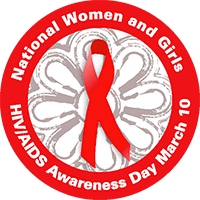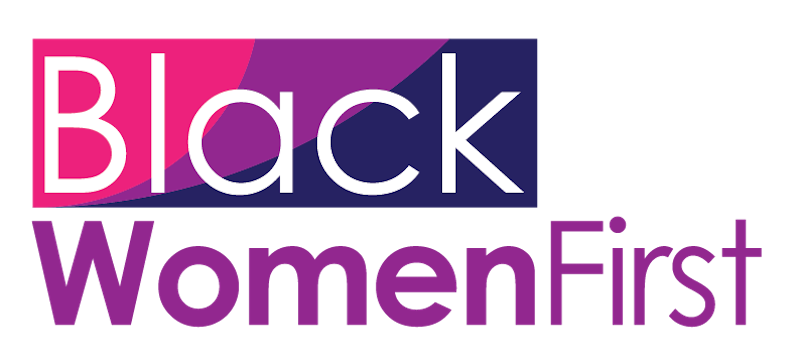
In 2022, 25.2% of Ryan White HIV/AIDS Program (RWHAP) clients were female and 2.3% were transgender female (HRSA, 2023). Twenty-three percent (23%) of people with HIV (CDC, 2019) and 18% of new HIV diagnoses are women (CDC, 2022).
HRSA on Women and Girls HIV/AIDS Awareness Day. The 2024 theme: Prevention and Testing at Every Age. Care and Treatment at Every Stage.
This blog summarizes data on women getting HIV care from HRSA's RWHAP and various initiatives and insights on service delivery targeting women with HIV.
Viral Suppression Trends
Viral suppression rates for all RWHAP client populations, including women, have steadily improved over the years. From 2010 through 2022, viral suppression increased from 66.3% to 89.9% among female RWHAP clients receiving HIV medical care. In comparison, rates increased from 69.5% to 89.6% for all RWHAP clients (RWHAP Annual Client-Level Data Report, 2022, HRSA, 2023). In greater detail:
- Viral suppression among Black/African American women receiving RWHAP care was 89.1%.
- Viral suppression among Latinas receiving RHWAP care was 91.6%.
- The rate of viral suppression among transgender women was 86.0%.
Women and HIV Care Interventions

HRSA's RWHAP funds a "pipeline" of initiatives to explore best practices in HIV care. Many are subsequently assessed for inclusion in the Best Practices Compilation of interventions that have demonstrated effectiveness at improving client HIV outcomes.
Included in the Compilation are two projects, developed under the Dissemination of Effective Interventions (DEII) initiative.
- Peer Linkage and Re-engagement of Women of Color with HIV. This project integrated peers into HIV primary care teams in order to enhance care engagement. Among the client results: 58% had a case manager (up from 23% at baseline); 96% were linked to care within 90 days; 73% were retained in care over 12 months; and 81% reached viral suppression at six and 12 months after enrollment (53% virally suppressed at baseline).
- Enhanced Patient Navigation for Women of Color. This project used navigators to reduce barriers to care and enhance care outcomes. Among the results: 76.3% were linked to care within 90 days of enrollment; 74.5% were retained in care; and 64.3% achieved viral suppression at 12 months, up from 36% at baseline.
Videos Support Patient Role in Care
DEII's Educational Videos for Women of Color with HIV provide HIV-specific patient education tailored for women of color with HIV. Treatment tips, understanding lab tests, and communicating with your doctor are some of the topics covered in these short videos.

RWHAP Part D: Supporting Adoption of Evidence-Based Care
The Enhancing HIV Care of Women, Infants, Children and Youth Building Capacity through Communities of Practice program is a platform for RWHAP Part D recipients to increase the delivery of effective interventions and improve the skills of the HIV workforce providing care and treatment to women, infant, children and youth (WICY). Access webinars and trainings developed under this HRSA project.
While all aspects of RWHAP deliver care to women with HIV, Part D is focused on HIV services for women, infants, children, and youth. See the RWHAP Part D WICY Fact Sheet (September 2023).
Quality Improvement
The HRSA-funded Center for Quality Improvement and Innovation (CQII) has various training tools for program staff on incorporating quality improvement within their RWHAP programs. Among their many initiatives is the HIV Disparity Interventions, which were tested and implemented by agencies that took part in the CQII's end+disparities ECHO Collaborative. Women Like Me Support Group is one of the project's interventions. The focus was on HIV-positive pre- and post-natal mothers that covers varied topics, with support by a mental health coordinator and medical director.
HIV Clinical Care
The National HIV Curriculum (NHC), developed by HRSA's RWHAP Part F AETC Program and the University of Washington, is continuously updated and offers continuing education credits and a robust online learning experience. Their HIV in Women topic covers contraception, conception, and other key issues. The HIV in Sexual and Gender Minority Populations chapter reviews epidemiology and care issues for cis- and transgender women.
Ryan White Conference Presentations: Women
Access our Conference Presentations database for sessions from recent Ryan White Conferences, like the session at the 2022 National Ryan White Conference on HIV Care & Treatment: Implementation and Outcomes of a Multidisciplinary Breastfeeding Program for Women with HIV, by Johns Hopkins University.
RWHAP Part D: A Focus on Women
